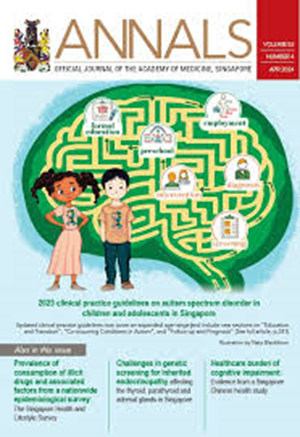Association of quality-of-care indicators with asthma outcomes: An observational study for asthma care in Singapore
IF 5.2
4区 医学
Q2 Medicine
引用次数: 1
Abstract
Introduction: Asthma guidelines have advocated for the use of quality-of-care indicators (QCIs) in asthma management. To improve asthma care, it is important to identify effective QCIs that are actionable. This study aimed to evaluate the effect of the presence of 3 QCIs: asthma education, Asthma Control Test (ACT) and spirometry testing on the time to severe exacerbation (TTSE). Method: Data collected from the SingHealth COPD and Asthma Data Mart (SCDM), including asthma patients managed in 9 SingHealth polyclinics and Singapore General Hospital from January 2015 to December 2020, were analysed. Patients receiving Global Initiative for Asthma (GINA) Steps 3–5 treatment, with at least 1 QCI recorded, and at least 1 severe exacerbation within 1 year before the first QCI record, were included. Data were analysed using multivariate Cox regression and quasi-Poisson regression models. Results: A total of 3849 patients in the registry fulfilled the criteria. Patients with records of asthma education or ACT assessment have a lower adjusted hazard ratio (HR) for TTSE (adjusted HR=0.88, P=0.023; adjusted HR=0.83, P<0.001). Adjusted HR associated with spirometry is higher (adjusted HR=1.22, P=0.026). No QCI was significantly associated with emergency department (ED)/inpatient visits. Only asthma education and ACT showed a decrease in the number of exacerbations for multivariate analysis (asthma education estimate: -0.181, P<0.001; ACT estimate: -0.169, P<0.001). No QCI was significant for the number of exacerbations associated with ED/inpatient visits. Conclusion: Our study suggests that the performance of asthma education and ACT was associated with increased TTSE and decreased number of exacerbations, underscoring the importance of ensuring quality care in clinical practice.护理质量指标与哮喘结局的关联:新加坡哮喘护理的观察性研究
简介:哮喘指南提倡在哮喘管理中使用护理质量指标(QCIs)。为了改善哮喘护理,重要的是要确定有效的、可操作的质量指标。本研究旨在评价哮喘教育、哮喘控制试验(ACT)和肺活量测定3个qci对急性加重时间(TTSE)的影响。方法:分析从SingHealth COPD和哮喘数据集市(SCDM)收集的数据,包括2015年1月至2020年12月在9家SingHealth综合诊所和新加坡总医院管理的哮喘患者。纳入接受全球哮喘倡议(GINA)步骤3-5治疗的患者,至少有1次QCI记录,且在首次QCI记录前1年内至少有1次严重恶化。数据分析采用多元Cox回归和准泊松回归模型。结果:共有3849例患者符合标准。有哮喘教育或ACT评估记录的患者发生TTSE的调整风险比(HR)较低(HR =0.88, P=0.023;调整后的HR=0.83, P<0.001)。校正HR与肺活量相关(校正HR=1.22, P=0.026)。没有QCI与急诊科(ED)/住院患者访问量显著相关。在多变量分析中,只有哮喘教育和ACT显示急性发作次数减少(哮喘教育估计:-0.181,P<0.001;ACT估计:-0.169,P<0.001)。与急诊科/住院次数相关的恶化次数没有QCI显著性。结论:我们的研究表明,哮喘教育和ACT的表现与TTSE的增加和恶化次数的减少有关,强调了在临床实践中确保高质量护理的重要性。
本文章由计算机程序翻译,如有差异,请以英文原文为准。
求助全文
约1分钟内获得全文
求助全文
来源期刊

Annals Academy of Medicine Singapore
医学-医学:内科
CiteScore
4.90
自引率
5.80%
发文量
186
审稿时长
6-12 weeks
期刊介绍:
The Annals is the official journal of the Academy of Medicine, Singapore. Established in 1972, Annals is the leading medical journal in Singapore which aims to publish novel findings from clinical research as well as medical practices that can benefit the medical community.
 求助内容:
求助内容: 应助结果提醒方式:
应助结果提醒方式:


